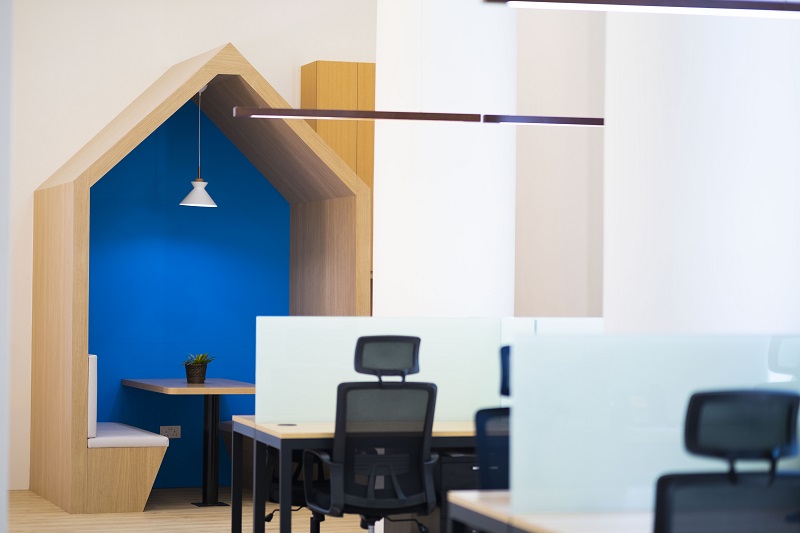The hybrid work model emerged as a result of the COVID-19 pandemic, which forced many companies to shift to remote work to maintain business operations while keeping employees safe.
As vaccines become more widely available, and society returns to normal functions, many organisations consider hybrid work as a long-term solution that serves as a greater employee retention benefit.
Hybrid work refers to a work arrangement that combines remote work and on-site work. It allows employees to split their time between working from home and working in a physical office or other designated workplace. This can be accomplished through a variety of schedules, such as alternating days in the office, working certain days in the office and others remotely, or splitting the workweek between the two.
Hybrid Work vs Remote Work
Hybrid work and remote work are similar in that they both involve some amount of working outside of a traditional office setting, but there are some key differences between the two.
Remote work typically refers to a work arrangement where employees work entirely from a location outside of the office, often from their home. Remote workers may have a flexible schedule, but they do not have a physical office to go to. Communication with colleagues and collaboration often happens through digital tools like email, video conferencing, and instant messaging.
One of the main differences between hybrid work and remote work is the amount of in-person interaction and collaboration. In a hybrid work model, employees may have opportunities to meet with colleagues and work together in-person, while remote workers may have less in-person interaction and rely more heavily on digital communication tools.
Overall, hybrid work offers more flexibility and variety than remote work, while still providing some of the benefits of in-person collaboration and social interaction. Hence, this has quickly become the preferred choice among employees.
Benefits of Hybrid Work Arrangement to Employees
Many organisations recognise the adoption of a hybrid work culture as it offers employees the best of both worlds.
Hybrid work provides their employees with greater flexibility and autonomy, which can lead to higher job satisfaction, improved well-being, and a better work-life balance. At Babilou Family, we also adopt a hybrid work arrangement for our HQ staff who can choose one of two designated days a week to work-from-home.
Some of the benefits that hybrid work arrangements are higher job satisfaction for employees because they have more control over their work environment and schedule. By working from home part of the time, employees can reduce their stress levels and increase their overall well-being, which can improve work-life balance.
This work model allows for more flexibility in handling unexpected situations like medical appointments for childcare and elderly members, personal commitments, or emergencies.
Studies have shown that employees who work from home are often more productive than those who work in an office. The flexibility of a hybrid work arrangement allows employees to take ownership of their work, better manage their workloads and improve their productivity.
Working from home can lead to cost savings for employees, such as transportation, and other expenses associated with working in an office daily, such as work attire. This arrangement lessens peak-hours commuting stress and reduces carbon footprint.
Best Practices for Successful Hybrid Work Culture in Workplace
Companies can create a successful hybrid work culture that allows flexibility, collaboration, and productivity, while also maintaining a strong sense of company culture and employee engagement through these best practices:
1. Involve Employees in Hybrid Work Development
Effective communication is key to a successful hybrid work culture. Ensure that communication channels are established for remote workers to stay connected and updated with in-office workers.
Establish regular check-ins and meetings, and tap on video conferencing and instant messaging platforms to facilitate collaboration and communication.
2. Provide Clear Expectations on Remote Work
Clearly communicate expectations and guidelines for remote workers, including expectations around communication, work hours, and availability. This will help ensure that everyone is on the same page and working towards the same goals.
3. Embrace Technology to Get Their Work Done
Take advantage of technology to facilitate employees to accomplish their tasks. Invest in the right tools and technology to support remote work, such as cloud-based software, project management platforms, and video conferencing software.
For example, at Babilou Family, we use Microsoft Teams to communicate and collaborate with our teachers and staff.
4. Accept that Hybrid Work Requires More Coordination & Flexibility
Hybrid work requires managers and employees to spend more time on coordination, as it provides flexibility in work schedules and locations.
Here, employees will have the option to decide on work management based on their preferences, workloads, and family commitments. This will help ensure that employees are able to maintain a healthy work-life balance.
5. Emphasise Culture to Build Connections Between Employees
Trust is important in any work environment, but it's especially important in a hybrid work culture.
Trust that your employees are working productively, regardless of where they are located. Focus on outcomes rather than hours worked and ensure that performance is evaluated based on results rather than time spent in the office.
Enhance your company culture in a hybrid work environment by creating opportunities for virtual team building and socialisation. This will help your employees who are working remotely feel included and part of the team.
Hybrid work is here to stay
Overall, a hybrid work arrangement has become the mainstay work culture for many companies in Singapore. Connect with us to find out more on the working culture at Babilou Family Singapore.
Follow us on social media to stay updated on the latest happenings in Babilou Family Singapore:




